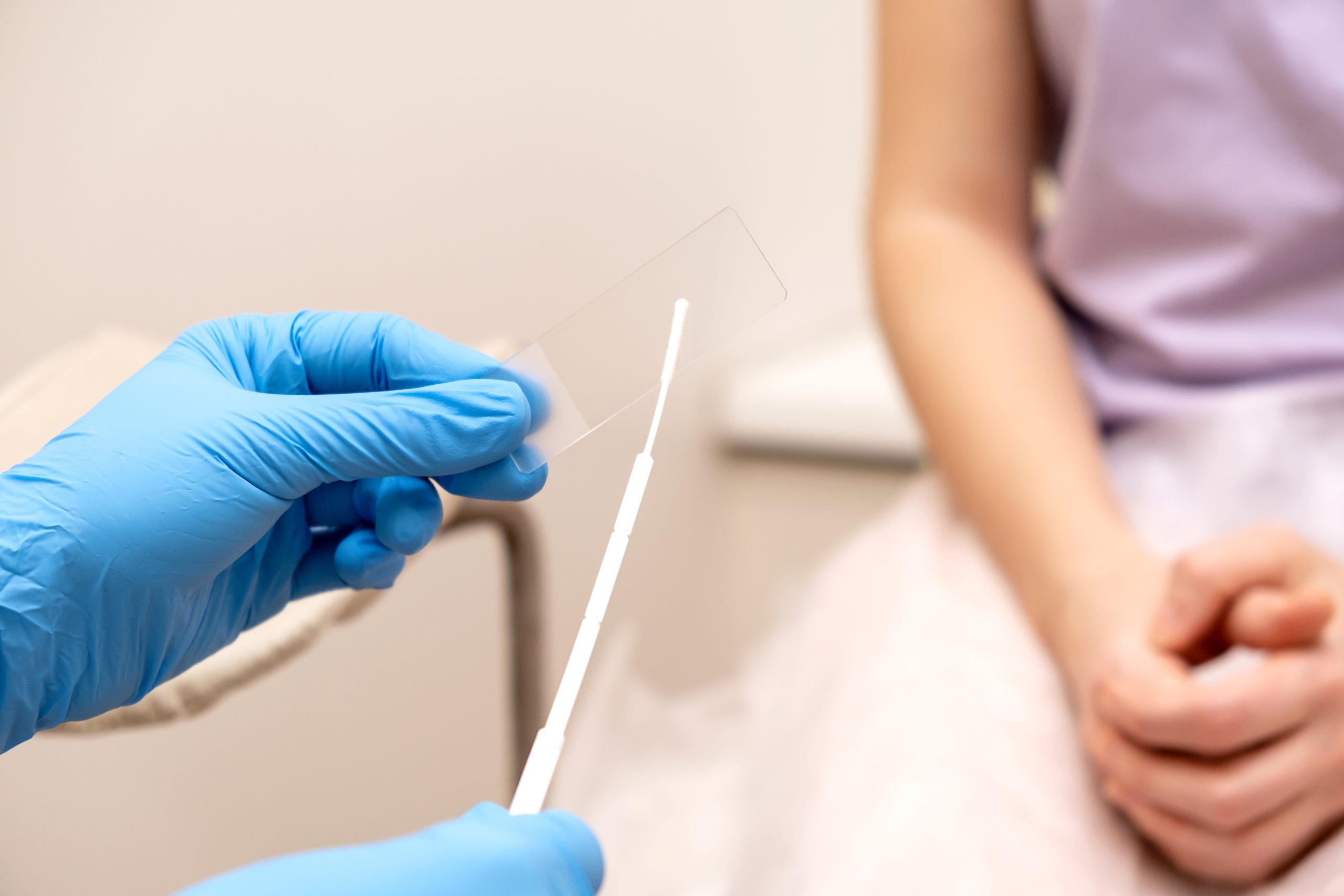A Pap test (also known as a Pap smear or, more formally, cervical cytology) is a screening for cervical cancer. They are incredibly important, and regular Pap tests reduce cervical cancer rates by as much as 80%.
During the procedure, an OBGYN collects cells from the cervix and surrounding areas to look for cell changes that could become cancerous over time. Previously, women were advised to have annual pap tests, but thanks to advancements in technology and research, we now recommend them at much longer intervals:
- Women aged 21 to 29 should have a Pap test every three years
- Women aged 30 to 65 should have a Pap test every five years
- Women over the age of 65 can stop having regular Pap tests if they have never had an abnormal test result
If your healthcare provider finds abnormal cells during a Pap test, it can be scary and stressful, but there may be a number of reasons why your results came back abnormal. Your Genesis OBGYN provider will work with you to understand your results and options.
What does an abnormal Pap test mean?
An abnormal Pap test result isn’t automatically a reason to panic; it is more common than you think. An abnormal result simply means that cell changes were found on the cervix. That does not always mean there is an HPV infection or cancerous cells, and there are a few other reasons why you may have received an abnormal result, such as:
- A bacterial or yeast infection
- Other types of sexually transmitted diseases
- Engaging in sexual intercourse directly before the Pap test
All of the above can affect the cells in the cervix and hinder results. The most important thing is to follow up with your doctor immediately when you have abnormal Pap test results so they can discuss the next steps.
HPV and abnormal Pap Tests
According to the Centers for Disease Control, in many cases, abnormal Pap tests are the result of an HPV infection, so you should understand what HPV is and why it is essential to screen early and regularly. HPV, or Genital human papillomavirus, is the most common STI in the United States. There are 40 different types of HPV, and it is responsible for 90% of cervical cancers. Many people who become infected with HPV are not even aware of their infection.
While it is not likely that HPV will lead to cancer, around 10% of women with HPV infection present on the cervix will develop long-lasting infections that put an increased risk of cervical cancer. That is why it is critical to get Pap and HPV tests, and although it is scary to receive an abnormal Pap test result, following up with your OGBYN can save your life.
What happens after an abnormal Pap test result?
After an abnormal Pap test result, your OBGYN will likely order follow-up tests or examinations to determine the cause. Two of these examinations are:
- Cervical biopsy: A small amount of tissue is removed from the cervix and the area around it. These cells are tested for abnormal or precancerous conditions or cervical cancer.
- Colposcopy: A smooth, tube-shaped tool called a speculum is gently inserted into your vagina to open it. A small microscope is then used to examine your cervix.
Neither of these tests is any indication that you have cervical cancer; they are standard protocol with an abnormal pap result. Do not worry if you need follow-up examinations. Your healthcare provider will discuss the results and any additional findings with you in great detail.
Work with your OBGYN to understand your treatment options after an abnormal Pap test
Abnormal pap test results can be scary, but they do not mean you have a serious condition. If they are indicative of the presence of an HPV infection or something else, knowing and taking action earlier is the best thing to do.
If you are due for a cervical exam or have other concerns, do not hesitate to contact your Genesis OBGYN provider. We’ll recommend and provide compassionate healthcare services to support your physical and emotional well-being. Contact us to request an appointment today.


